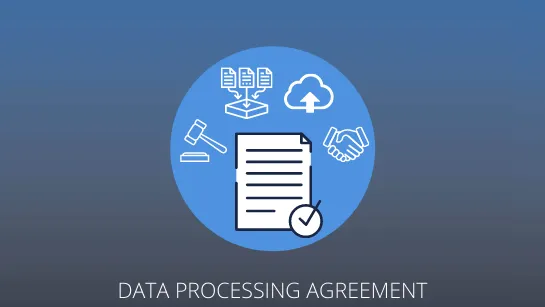Introduction
The importance of safeguarding sensitive information cannot be overstated in an interconnected digital landscape, where data flows seamlessly between various entities. Data breaches and cyberattacks have become all too common, with hackers capitalising on vulnerabilities in the systems of third-party data processors. Neglecting 3rd party due diligence audits when engaging with these processors can invalidate data processor contracts and expose organisations to substantial regulatory fines. This article explores the critical link between due diligence audits, data processor contracts, and the potential for hefty regulatory penalties.
1. The Essential Role of Due Diligence Audits
Due diligence audits are a fundamental aspect of risk management, especially when collaborating with third-party data processors. These audits involve assessing the technical, organisational, and security measures implemented by the data processor to ensure the protection of sensitive data. Neglecting to conduct thorough due diligence audits is akin to inviting a security breach into the heart of your operations.
2. Data Processor Contracts: A Fragile Alliance
Data processor contracts are legally binding agreements that outline the terms and conditions under which a third party processes data on behalf of the data controller. While these contracts aim to establish guidelines for data protection, they are only as strong as the due diligence backing them. Failing to conduct proper audits of data processors undermines the integrity of these contracts in several critical ways.
2.1. Breach of Contractual Obligations: Most data processor contracts include clauses that stipulate the security measures and protocols the processor must adhere to. Neglecting due diligence audits allows data processors to potentially fall short of these obligations, rendering the contract void or placing the data controller in a weak legal position.
2.2. Negligence in Duty of Care: Data controllers have a legal and ethical obligation to ensure that the personal data they collect and process is adequately protected. By not conducting due diligence audits, data controllers could be accused of neglecting their duty of care, further compromising the validity of the contract.
2.3. Regulatory Non-Compliance: Many data protection regulations, such as the GDPR, mandate that data controllers ensure the security practices of their third-party processors. Failing to fulfill this requirement not only endangers the contract but also exposes the data controller to substantial fines and penalties.
3. The Regulatory Sword: Fines and Penalties
Data breaches resulting from inadequate third-party due diligence audits can have severe consequences in terms of regulatory compliance. Regulatory bodies are increasingly focused on holding organizations accountable for data breaches, especially those stemming from their third-party partners. Fines can reach staggering amounts and vary depending on the nature of the breach, the type of data compromised, and the jurisdiction in which the organization operates.
4. Real-World Examples of Regulatory Penalties
Several high-profile cases underscore the financial ramifications of failing to conduct third-party due diligence audits:
- British Airways (2019): The airline giant was slapped with a record £183 million (approximately $240 million) fine by the UK Information Commissioner’s Office (ICO) following a data breach caused by inadequate security measures. The breach affected the personal data of around 500,000 customers.
- Marriott International (2020): The hotel chain faced a £18.4 million (approximately $24 million) fine from the ICO due to a massive data breach that exposed the personal information of over 339 million guests. The breach was a result of vulnerabilities in a subsidiary’s systems.
Conclusion
The consequences of failing to conduct third-party due diligence audits go beyond contractual implications; they can lead to a domino effect of regulatory fines and reputational damage. Data breaches originating from third-party processors can shatter consumer trust, result in significant financial losses, and tarnish an organization’s standing in the industry. By treating due diligence audits as a non-negotiable component of the data processing landscape, organizations can not only safeguard their contracts but also mitigate the risk of regulatory fines that could cripple their operations. In the modern age of data protection, ignorance is no longer bliss; it’s a costly liability waiting to be exploited by hackers and regulators alike.
